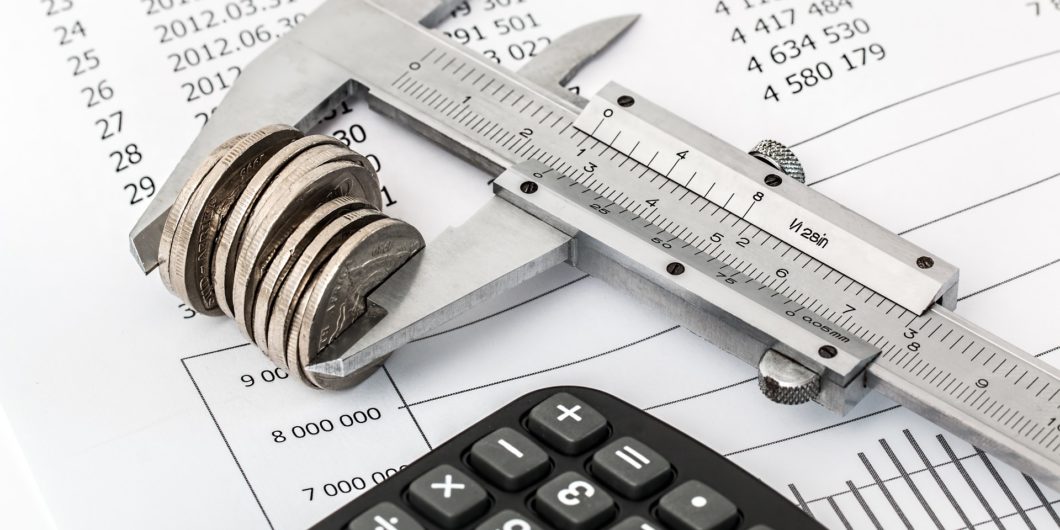Tag Archives for " home inspection "

Closing Costs are fees that are associated with the purchase of your Southern NH home for sale that are paid at the closing of a real estate transaction. The closing is the time at which the title of your Southern NH home for sale is transferred from the seller to the buyer. The closing costs of the loan are incurred by the buyer. While the seller pays for commission, transfer of the deed and a few other miscellaneous state fees.
There are many different fees you can expect to encounter when you are closing on a new home in Southern New Hampshire. They vary widely depending on where you live, the type of home you purchase, and the type of loan that you choose to take out. These fees may include:
Home buyers will pay anywhere between about 2% to 5% of the purchase price of their home in closing fees but it typically ranges around 3.5%. Your lender will give you a loan estimate for your loan, which will include what the closing costs on your home will be. Many of the fees that make up closing costs may be negotiable. You can also look around for different lenders to see who may be willing to offer you a loan with the lowest closing costs and especially the lowest interest rate.

What is Radon?
Radon is a naturally occurring radioactive gas that you cannot see, smell, or taste. It is a carcinogen that has been proven to cause cancer. The Surgeon General warned that Radon is the second leading cause for lung cancer in the United States today. If you smoke, and there is Radon in your home, then you are at an even higher risk for lung cancer. If you are looking for more information on radon you can check out the EPA website at www.epa.gov/iap/radon/pubs/index.html or call the New Hampshire Bureau of Environmental & Occupational Health at (603) 271-4610.
In 1899, English physicist Ernest Rutherford first discovered Radon. The discovery is also credited to German physicist Friedrich Ernst Dorn in 1900. Rutherford discovered Radons’ alpha radiation, and Dorn discovered that radium was releasing a gas.
Radon is a colorless chemically-unreactive inert gas. It is the heaviest known gas. Radon is 9 times denser than air. Because it is a single atom gas it easily penetrates many common materials like paper, leather, low-density plastic, paints, building materials, and most insulations.
How is Radon made?
Radon is not produced as a commercial product. Radon is a naturally occurring radioactive gas and comes from the natural breakdown of uranium. It is usually found in igneous rock and soil. In some cases, well water may also be a source of radon. New Hampshire is the granite state and radon can come through the rock in the ground and other soils and clays and come into our homes.
What happens when you’re exposed to Radon?
Human exposure to radon are inhalation and ingestion. Radon in the ground, groundwater, or building materials enters working and living spaces and disintegrates into its decay products. Although high concentrations of radon in groundwater may contribute to radon exposure through ingestion, the inhalation of radon released from water is usually the concern.
Testing is the only way to know if you have Radon in your home. The EPA indicates that any readings above 4.0 pCi/L in the air are not acceptable levels and should be mitigated. It is recommended that the testing device be put in the lowest level suitable for occupancy and typically is left for readings in a 48-72 hour time frame.
How do you get rid of Radon?
If you do find Radon in the air of your Southern NH home, you can reduce the exposure to an acceptable amount on your own for around $500, but this is not recommended because it is a dangerous gas. We suggest you find a Certified Radon Mitigator in your area. For radon air, the professional will usually install a sub-slab depressurization method by inserting a PVC pipe through the basement floor and venting it out the roof with a fan and typically runs from $1200-$1500 in Southern New Hampshire.
For radon in the water, the State of NH recommends a level lower than 2000 pCi/L but there is no standard EPA regulatory limit. The cost to mitigate radon in the water runs from $2500-$5000. Aeration is the method suggested by the State of New Hampshire to get rid of radon in water and sometimes require an additional water softener system, if there are high levels of iron or manganese. Every state has their own guideline as to what they feel is safe and you need to go with what makes you feel safe in your Southern New Hampshire home.
If you are looking to test for radon in your Southern New Hampshire home and would like some suggestions on a Certified Radon Mitigator feel free to give us a call at Harmony Real Estate at (603) 883-8840. We would love to help you better the quality of life for you and your family in your Southern NH home.

Hiring a home inspector is a very important part of your home buying process. Don't let the house inspection kill the deal! When you are choosing an inspector to check out your South Nashua home for you, be sure to ask them how much experience they have. You don’t want to hire someone with a poor inspection background because they may miss something very important.
Typically, an inspection report is 20 or more pages long. Most inspectors, and Real Estate agents think the buyer should use the inspection to generate a list of repairs that should be accomplished. If the seller is aware of these issues beforehand they should work on any major repairs before they sell their South Nashua home to make it more valuable. If the buyer doesn't like the results of an inspection report, they have the right to ask the owner to fix the items, keep it as is or exit the contract and look for a new home. Typically the buyer and the seller will come to an agreement on what repairs will be remedied and move toward a closing on their South Nashua home for sale.
What a buyer usually doesn’t always realize is that once they find a new home, they will have to pay for that home to be inspected as well. Inspections range from about $300-$500 and they are non-refundable. If there are problems with the home you want to purchase, you should decide how much those repairs will cost before you leave the contract. If yo can't come to a reasonable agreement with the seller it may be better to find a new South Nashua home for sale and pay for another inspection. However, you never know if the next home you find will have more issues than the previous one, or not.
When purchasing a home that is being sold to you by the owner, you need to remember that it is not a brand new home. Used homes that have been lived in will have some wear and tear on the home. If you are looking for something perfect, definitely consider looking into a brand new home. Instead of breaking a deal over repairs, it would make more sense to buy a home warranty in the event that something breaks. There are home warranties available for under $500! Some sellers may even be willing to pay for a home warranty instead of repairs.
Unfortunately, some home inspectors lack people skills, and fail to explain their findings properly. There have been some complaints about home inspectors who use verbiage in their reports such as “may in the future,” or “could potentially.” The words “may” and “potentially” mean that there is a possibility of something happening, not a guarantee. When people are getting houses inspected, they want to know exactly what is wrong, and what to do to fix it. What inspectors don’t seem to understand is that buyers take these statements as “ you’re house is falling apart” or “don’t buy this!”
To be sure a home inspector won’t kill your South Nashua deal, it's important that buyers and sellers use an experienced agent. Also, make sure you ask questions about the inspection. If they use words like “may” or “potentially” ask the inspector why they said that. Have them explain to you why they think something could go wrong with whatever object they stated, in the future. Be sure your agent shows up at the inspection to help you ask those needed questions.
The purpose of a home inspection is not to have the seller fix every single item in the contained report, that would be unreasonable, but more so to help the buyer see any huge issues that make the cost of the house go down. Buyers have the right to ask the sellers to fix something, but sellers also have the right to say no. There are always going to be a list of repairs that need to be fixed in your South Nashua home but the sellers are not going to be willing to fix every leaky faucet or toilet flange but more likely to fix a leaking roof or failed septic. It is more reasonable to understand this information about your South Nashua home for sale at the onset.
Don’t let the home inspector break your deal! Be sure that the home inspector and the buyers agent are present for you as a buyer to ask questions. They can help you understand things you don't understand about the home. It could be as simple as where a light switch may be, or how to turn on the lights to the pool or more complicated like finding the shut valves or changing the settings on your water heater. That way you don't worry about items that may not even be broken.
If you are looking for more information on selling your South Nashua home or would like a list of homes for sale in South Nashua give our agents at Harmony Real Estate a call at (603) 883-8840. We are here to help you through your South Nashua home sale process!